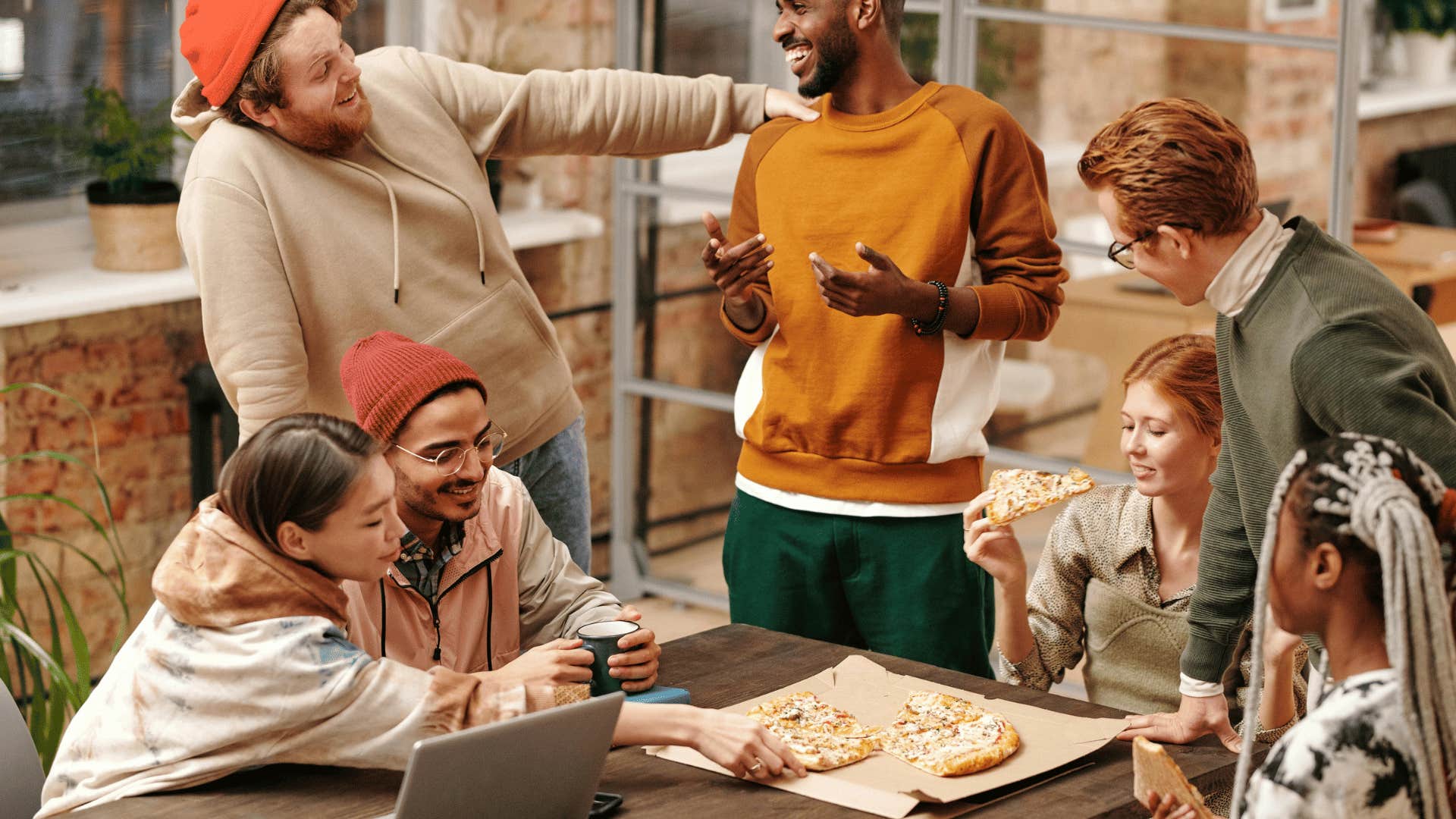11 Subtle Habits Of People Who Others Can't Stop Thinking About, According To Psychology
How to be the person that stays on everyone's minds.
 Cecilie_Arcurs | Canva
Cecilie_Arcurs | Canva I often talk about how self-focus just leads to misery. But good things happen when we know how to make an impression on others. We live in a social world. We’re building personal brands. And, when we have value to share, the world benefits from knowing who we are and remembering us. As Lin Manuel Miranda's Alexander Hamilton rapped in Hamilton, "The world is gonna know your name."
Over the years, I've picked up habits that helped me become a person nobody ever forgets — in a good way, of course — and now I want to share the secrets of how to memorably stick out in people's brains, even if you just meet them one time.
Here’s what most get wrong: They try to be memorable through big moves. But the truly unforgettable? They master the subtle habits that stick. Think about it: Those you can’t stop thinking about — are they the loudest? Or the ones who make you feel like there’s always another layer to discover? Apply these habits today, and watch how people respond.
Here are eleven subtle habits of people who others can't stop thinking about:
1. They create intrigue
 fauxels / Pexels
fauxels / Pexels
Stop giving it all away. Create intrigue by sharing 90% and letting others figure out the remaining 10%. Most people either hide or reveal all. The memorable ones make people curious about them.
2. They're not always available
 Matheus Bertelli / Pexels
Matheus Bertelli / Pexels
Responding to every text within two seconds is great if you’re a service business but not for reinforcing the idea that you’re scarce. Like diamonds, scarcity = value. Create a life with a mission instead.
3. They can read a room and respond accordingly
 Diva Plavalaguna / Pexels
Diva Plavalaguna / Pexels
While Jake and Nancy nod heads like scared donkeys, you’re out here taking in the whole vibe. We communicate beyond words. Develop this part of you so you get what’s going on with people. They will sense your insane skill in return.
According to a 2014 study, active listening fosters a sense of being heard and understood, builds trust, and allows for better comprehension of the speaker's message. This, in turn, leads to more positive interactions and stronger relationships.
4. They're unbothered by trivialities
 Vinicius Wiesehofer / Pexels
Vinicius Wiesehofer / Pexels
As humans, we’re laughably emotional and rather chaotic beings. This is cool. This makes us beautifully human. But this can also hinder us and push each other apart. Be the cool cat in the storm. This is rare and will inspire all you meet.
Nick Wignall, a psychologist, recommended that everyone take the time "to cultivate a healthier intuition about their emotions." We're conditioned to avoid everything we know will make us feel bad. However, there's power in taking the time "to understand and respect our emotions," and maybe that's what people remember most.
"If you want to be more emotionally intuitive, get in the habit of listening to all your emotions, but trusting none of them," Wignall advised. "When faced with a difficult emotional situation, use your head. And when in doubt, ask yourself: Does this emotion align with my values?"
5. They have unparalleled empathy
 Athena Sandrini / Pexels
Athena Sandrini / Pexels
While most squawk endlessly about themselves, you’re there to create space so they can speak and be heard. Be different.
6. They spend more time listening than talking
 fauxels / Pexels
fauxels / Pexels
This doesn’t necessarily mean being silent, but if you’re the cat speaking a whole lot less, you set yourself apart from the crowd. Most people compete to impart their entire life story to anyone with the chops to listen. Not you. This is mysterious.
Findings from a 2023 study indicate that people often mistakenly believe they should talk less in conversations to be liked. However, speaking a moderate amount is generally perceived more favorably. Some studies even suggest that talking more can lead to being better liked in new interactions; this misconception is sometimes called a reticence bias.
7. They don't overstay their welcome
 Victoria Labadie | Shutterstock
Victoria Labadie | Shutterstock
You can do this with grace. It’s like turning away from a kiss first. Be strategic and exit when the energy is still high. Most people stay well after a moment has peaked when the air is thick with wasted energy and the heavy humidity of wagging tongues.
8. They're adept at weaving in stories when talking to people
 Christina Morillo / Pexels
Christina Morillo / Pexels
This means painting a picture rather than telling it outright. While others say: ‘social media is poison,’ you tell them how you deleted Instagram and slept better than you have in years.
9. They think before they speak
 fizkes | Shutterstock
fizkes | Shutterstock
Get into the habit of waiting a couple of seconds after someone speaks. You’re in no rush. Not to be rude, but because you love life and you’re taking your sweet time. When you do talk, your slow approach makes each word resonate with shine.
Author and editor NyRee Ausler advised that responding more slowly means "paying attention and actively listening when another person is talking. It means that what you are about to say is well-thought-out and meaningful."
Ausler continued, "If you want to communicate effectively, it’s a good idea to make sure your choice of words and body language convey the message you want to get across. When we fail to think before speaking, our responses can be emotional, causing pain and damaging relationships. We can also talk ourselves out of opportunities and resources or into deep trouble.:
It's also worth remembering that your body language supports the message you want the other person to receive.
10. They make others feel like main characters
 August de Richelieu / Pexels
August de Richelieu / Pexels
Put your energy into making those you meet feel important. This needn’t be a chore. Have fun with this. This instantly shifts your attention from yourself, which is fear-based, to making others feel good. This will boost your curiosity for others and be felt for weeks.
11. Their energy is playfully unpredictable
 Helena Lopes / Pexels
Helena Lopes / Pexels
How about this? Shift your energy at unexpected times. When everyone’s getting hyped, you get quiet. When the room’s serious, you inject warmth. Not randomly — intentionally.
Incorporating uncertainty and unexpected elements into play can foster cognitive development, encourage exploration, and enhance learning, particularly in children. A 2023 study also explored the potential downsides of excessive unpredictability, like increased anxiety or stress, depending on the individual and context. These concepts are often examined through 'risky play' and 'loose parts' in play environments, where elements can be manipulated and rearranged to introduce variability.
Alex Mathers is a writer and coach who helps you build a money-making personal brand with your knowledge and skills while staying mentally resilient.

